Counting practice Numbers up to 100 Worksheets for Ages 4-7
7 filtered results
-
From - To
Enhance your child's counting skills with our engaging "Counting Practice: Numbers up to 100" worksheets, specially designed for ages 4-7. Our interactive and colorful activities make learning enjoyable, helping young learners master number recognition and counting techniques. Each worksheet features fun exercises that promote essential math concepts, fostering both confidence and fluency with numbers. Perfect for classroom or home use, these worksheets facilitate practice in a stimulating way, ensuring lasting comprehension. Download now and watch your little ones thrive as they embark on their counting journey! Ideal for early education, these resources support essential developmental skills in a playful environment.
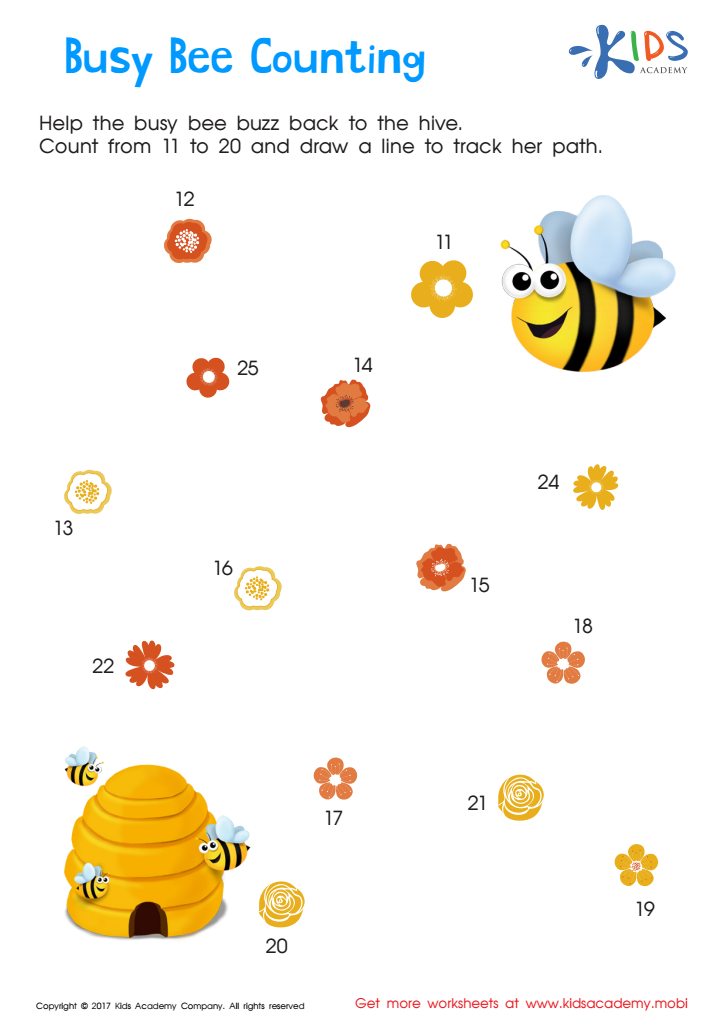

Ordering 11–20: Busy Bee Counting Worksheet
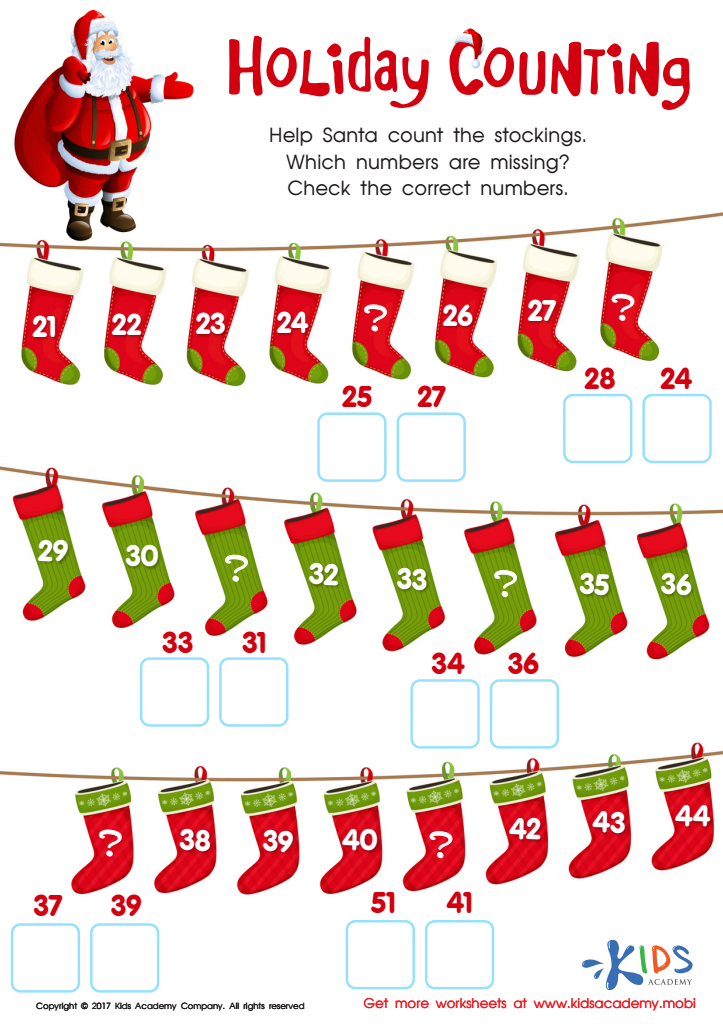

Holiday Counting Worksheet
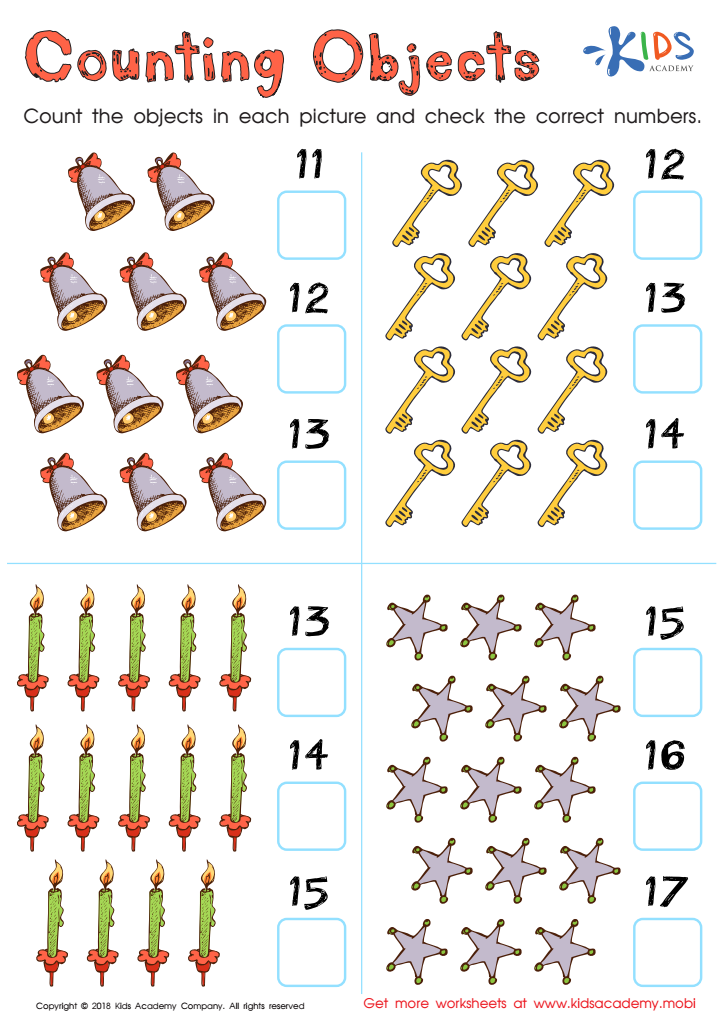

Counting Numbers Worksheet For Kindergarten
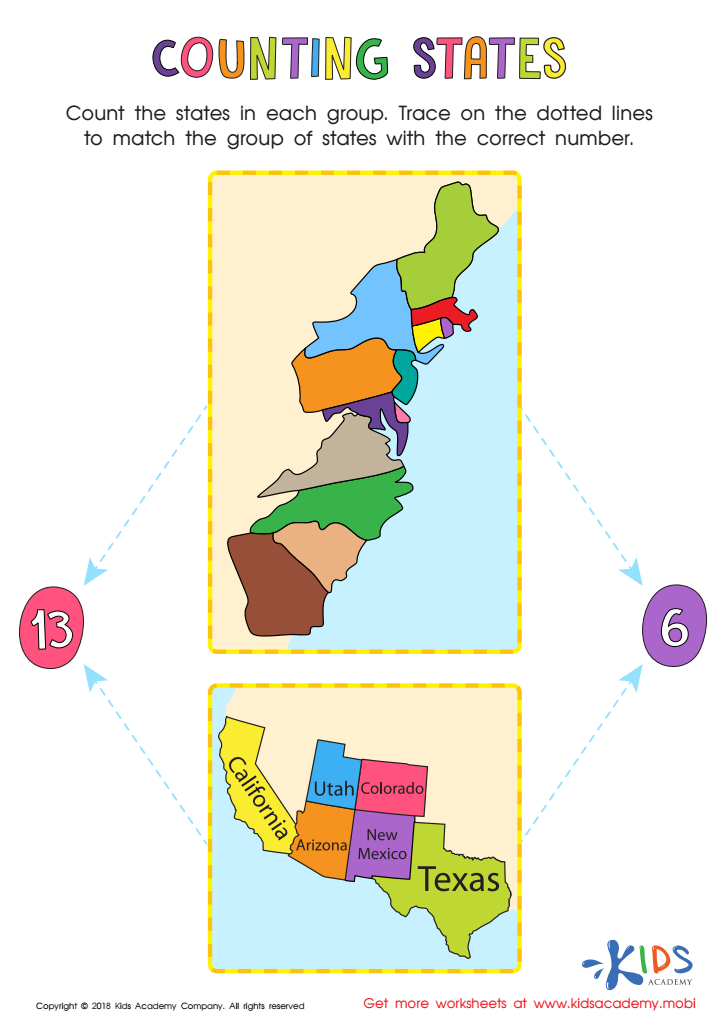

Counting States Worksheet
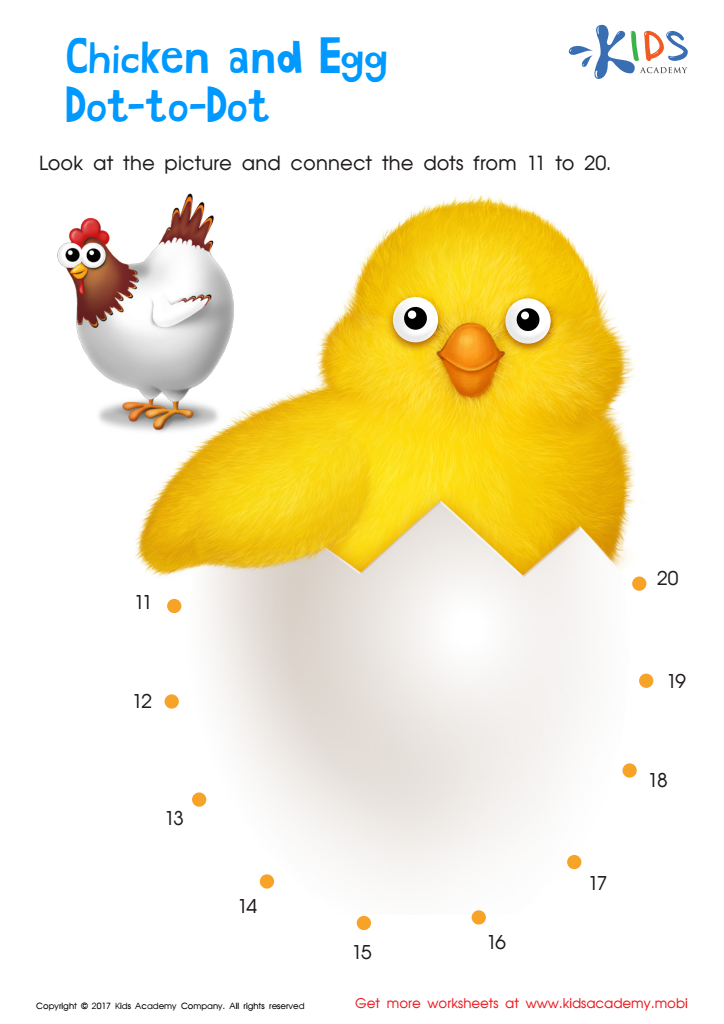

Ordering 11–20: Chicken & Egg Dot–to–dot Worksheet
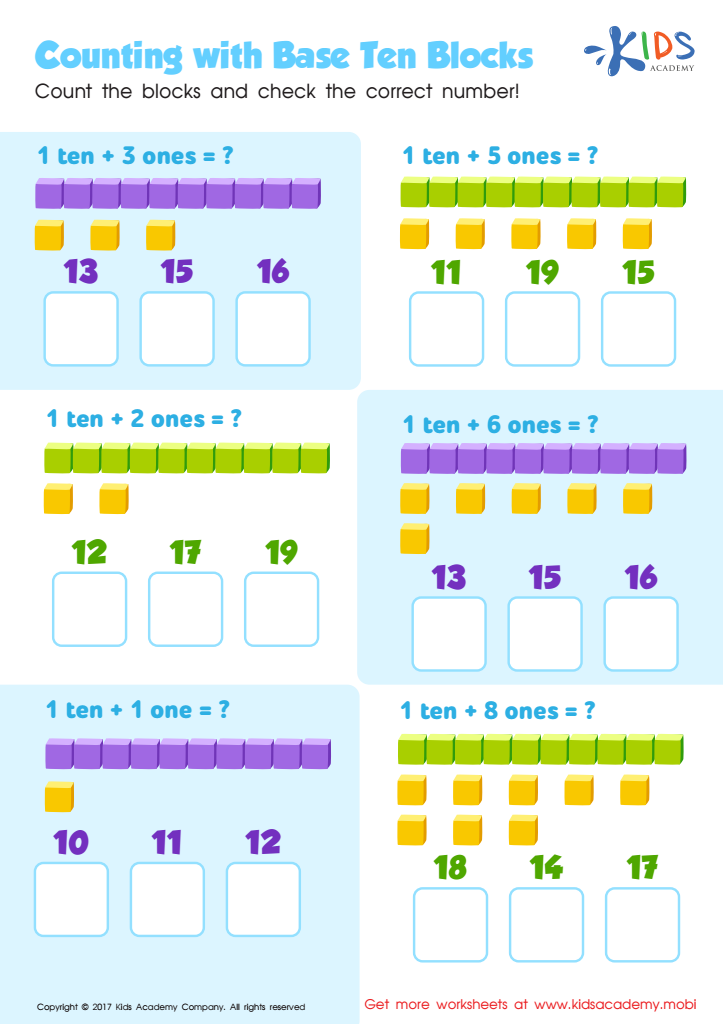

Counting with Base Ten Blocks Worksheet


Counting on the City Skyline: Dot-to-Dot Worksheet
Counting practice for children aged 4-7 is crucial for their cognitive and mathematical development. At this age, children are like sponges—eager to absorb new concepts, and learning to count lays the foundational skills for future mathematical understanding. Mastery of counting up to 100 helps children recognize number patterns and establish a strong grasp of numerical relationships, which are essential for addition, subtraction, and problem-solving.
Furthermore, engaging in counting activities improves fine motor skills and enhances memory through repetitive practice. It also promotes language development as children learn to verbalize numbers and relate them to real-world objects, fostering a deeper understanding of quantity.
Parents and teachers play a pivotal role in making counting fun and engaging by integrating games, songs, and everyday activities. This not only keeps children interested but also builds their confidence in their abilities. Additionally, providing children with opportunities to apply their counting skills in practical scenarios—like counting toys or snacks—reinforces their learning.
Overall, understanding numbers up to 100 is not just a basic math skill; it’s one of the critical building blocks for children’s overall education and their ability to navigate the world confidently. Early encouragement and practice are key.
 Assign to My Students
Assign to My Students






















